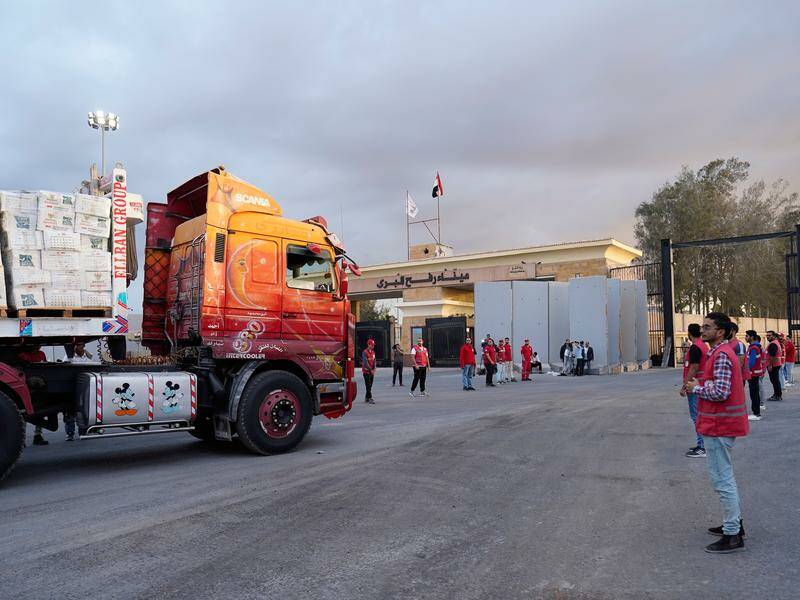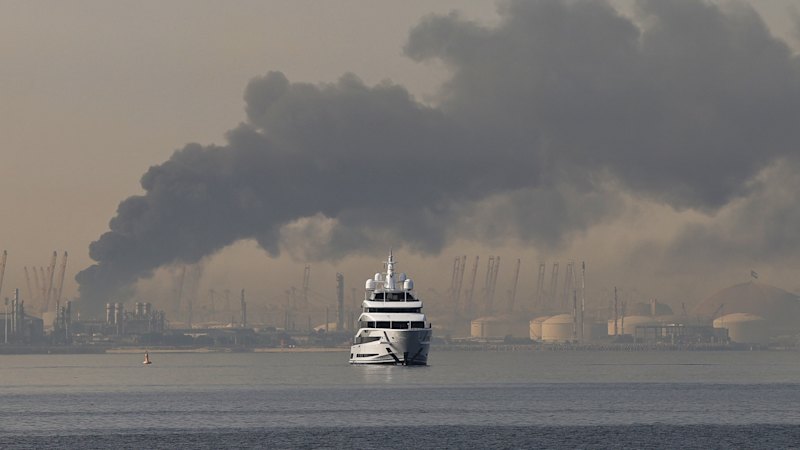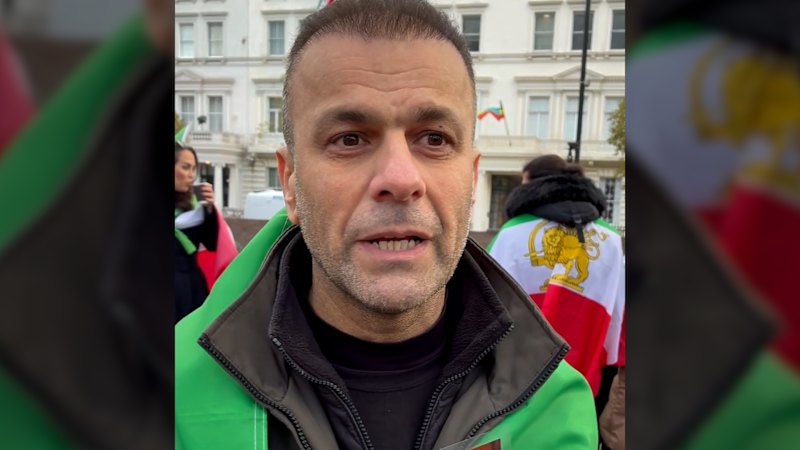
Humanitarian aid trucks have begun entering the Gaza Strip from Egypt, following a ceasefire agreement between Israel and Hamas. This development brings renewed hope for the region after a prolonged and devastating conflict lasting nearly two years.
Long lines of trucks carrying essential supplies are now stationed in the Rafah area, poised to cross through the Kerem Shalom and al-Awja crossings, which are controlled by Israel. According to reports from Al-Qahera News, the Israeli defense body responsible for humanitarian operations in Gaza, known as COGAT, anticipates that aid shipments will increase significantly this Sunday, with around 600 trucks expected to enter the territory.
On the same day, Egypt plans to send in an additional 400 trucks loaded with vital supplies. Before entering Gaza, these trucks will undergo inspections by Israeli forces. Footage captured by the Associated Press shows dozens of trucks crossing the Egyptian side of the Rafah crossing, carrying medical supplies, tents, blankets, food, and fuel, as confirmed by the Egyptian Red Crescent.
Humanitarian Needs and Aid Challenges
In recent months, the United Nations and its partners have faced severe challenges in delivering necessary aid to Gaza, managing to provide only 20 percent of the required assistance due to ongoing fighting, border restrictions, and Israeli limitations on what can be brought into the region. The situation has raised concerns about the humanitarian crisis in Gaza.
The future of the Gaza Humanitarian Foundation, an Israeli and US-backed contractor that has been the primary food supplier in Gaza since May, remains uncertain. Following the ceasefire, several food distribution sites operated by this organization in Rafah and central Gaza have been dismantled, according to local residents.
Preparations are also in motion for the release of Israeli hostages held in Gaza, alongside Palestinian prisoners detained in Israel. Gal Hirsch, Israel’s coordinator for hostages and the missing, communicated to families that they should prepare for the release of their loved ones starting on Monday morning. He indicated that hospitals and the Rei’im camp are ready to receive the hostages, while deceased individuals will be transferred to the Institute of Forensic Medicine for identification.
Hirsch noted that an international task force will initiate efforts to locate deceased hostages who are not returned within the 72-hour timeframe, acknowledging that this search might be protracted, especially as some bodies may be buried under rubble. Israeli officials estimate that around 20 of the 48 hostages held by Hamas and other Palestinian factions are still alive, with all living hostages expected to be released on Monday.
International Response and Next Steps
US President Donald Trump, who played a pivotal role in brokering the ceasefire deal, is scheduled to arrive in Israel on Monday morning. His itinerary includes meeting with families of hostages and addressing the Knesset, Israel’s parliament. Following his visit to Israel, Trump will travel to Egypt, where he is set to co-chair a “peace summit” with Egyptian President Abdel-Fattah el-Sissi. This summit will include regional and international leaders and is aimed at discussing a peace plan to resolve the ongoing conflict.
The release of approximately 2,000 Palestinian prisoners held in Israel is also part of the ceasefire agreement. Among those to be released are 250 individuals serving life sentences and 1,700 people detained during the conflict without charges. The signed ceasefire stipulates that Hamas must provide information regarding any hostages who are not released within the first 72 hours, while Israel is obligated to share information about deceased Palestinians held in its custody.
The upcoming summit, set to take place in the Red Sea resort of Sharm el-Sheikh, will feature not only Trump but also numerous world leaders, including French President Emmanuel Macron, German Chancellor Friedrich Merz, and UK Prime Minister Keir Starmer. Their participation underscores the international community’s commitment to seeking a lasting resolution to the conflict.
The current ceasefire represents a crucial juncture for both humanitarian efforts and diplomatic negotiations, as stakeholders on all sides work towards a more stable future for the region.






